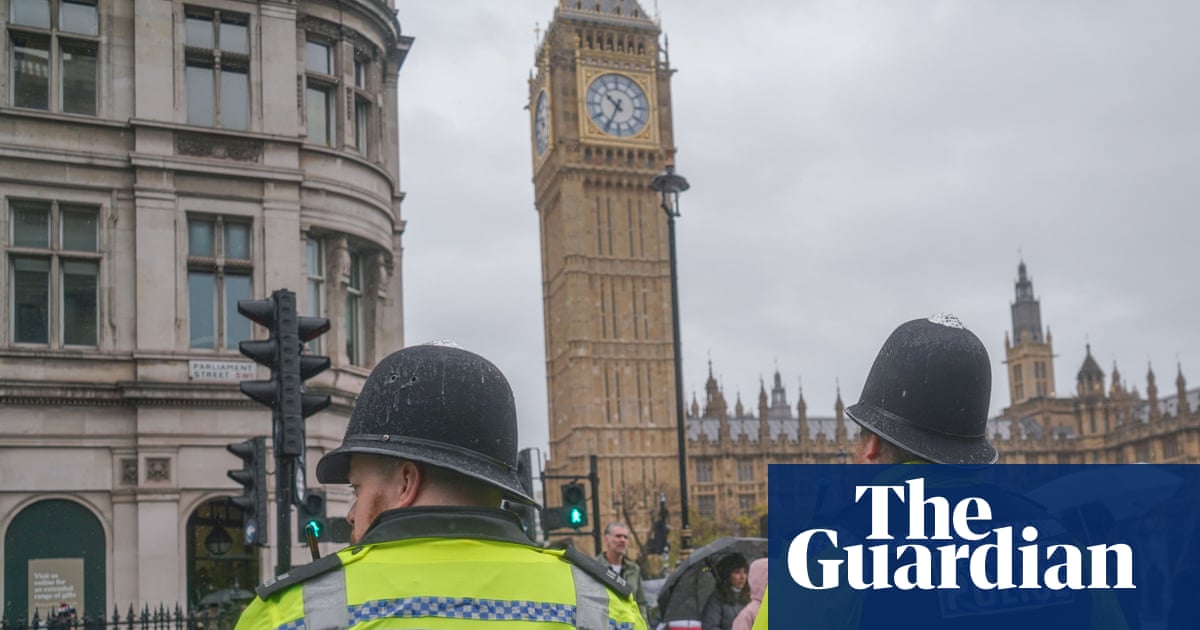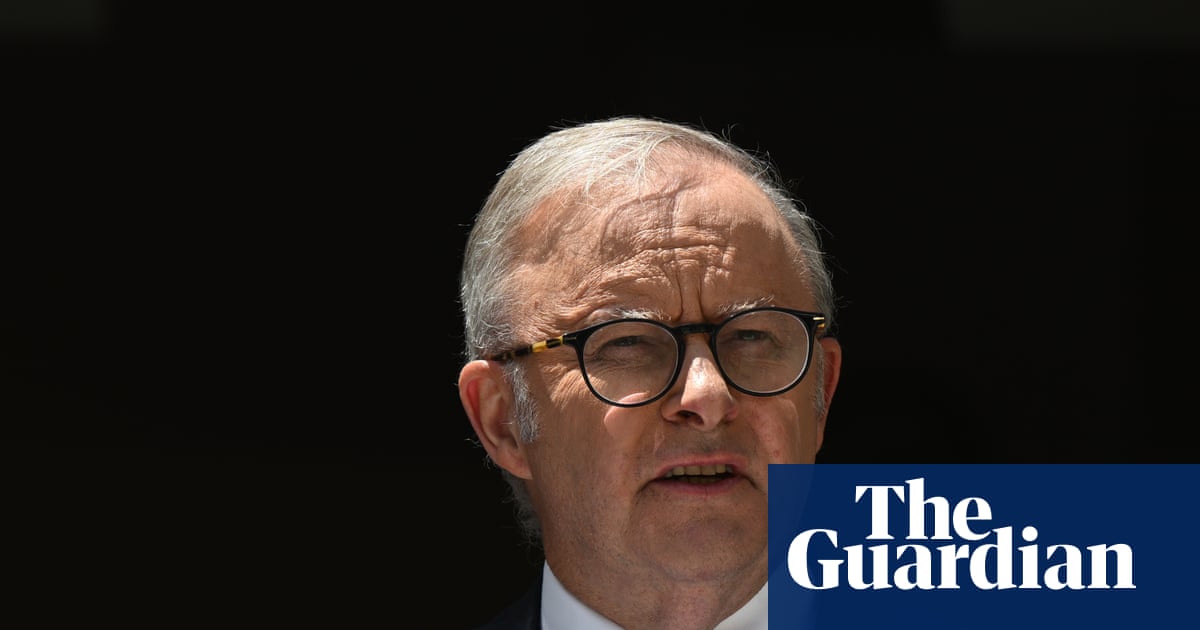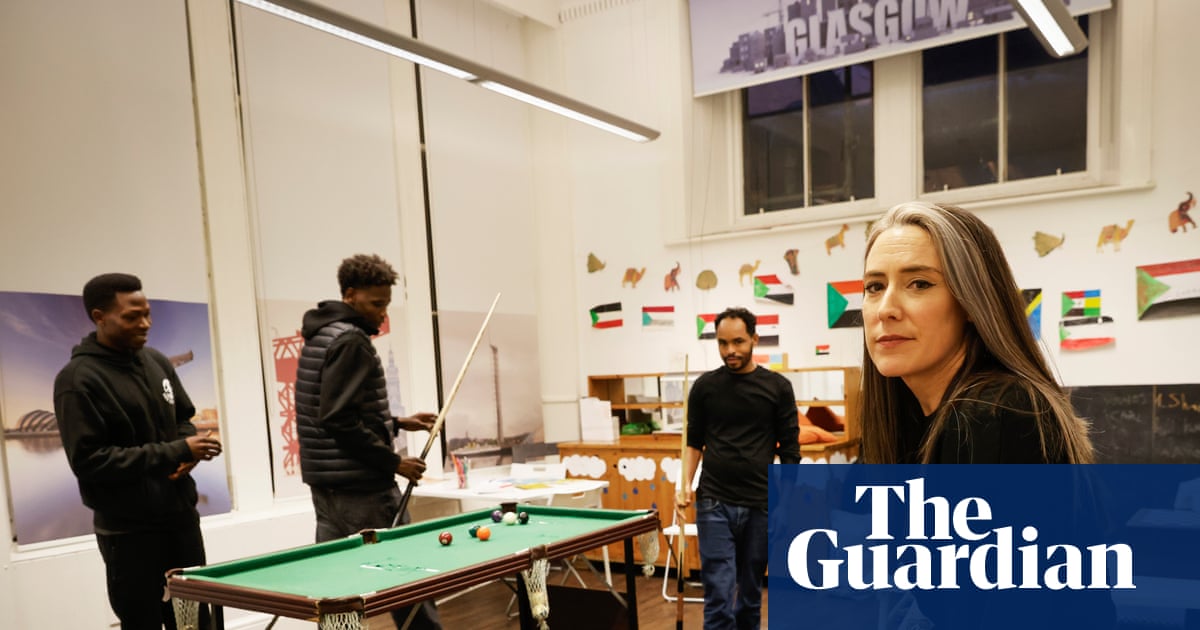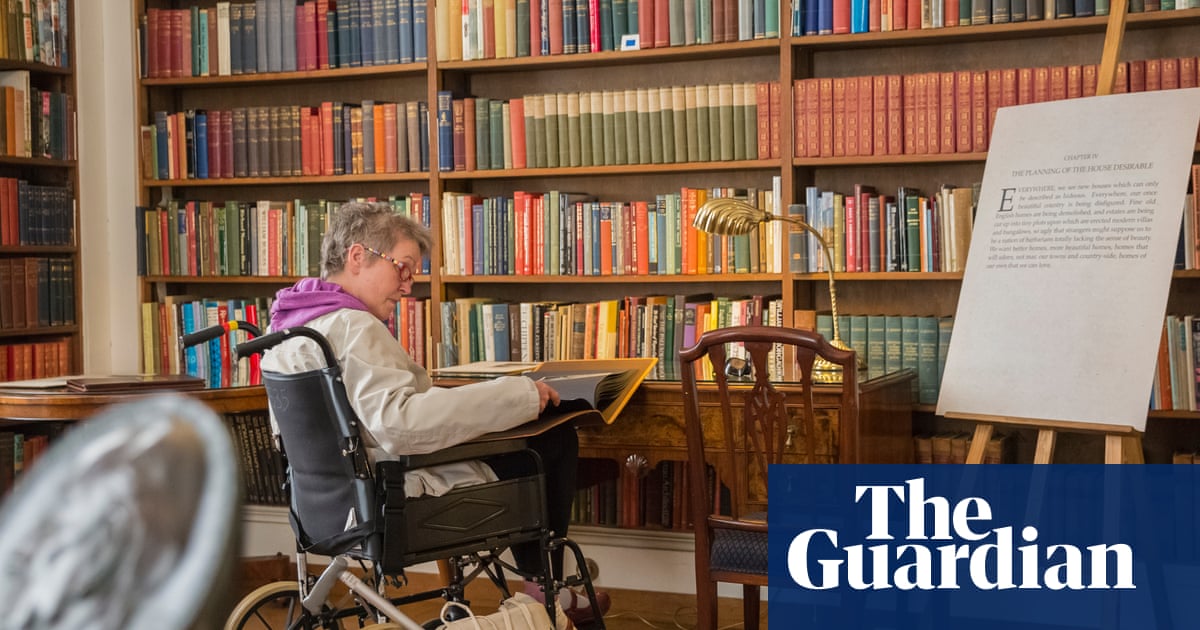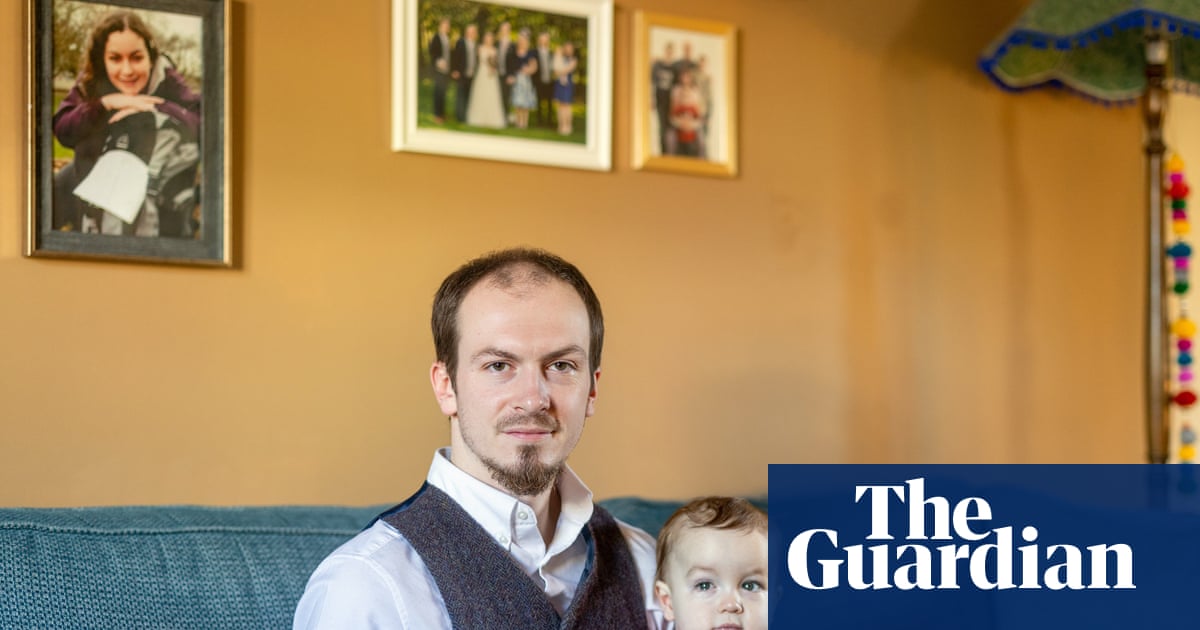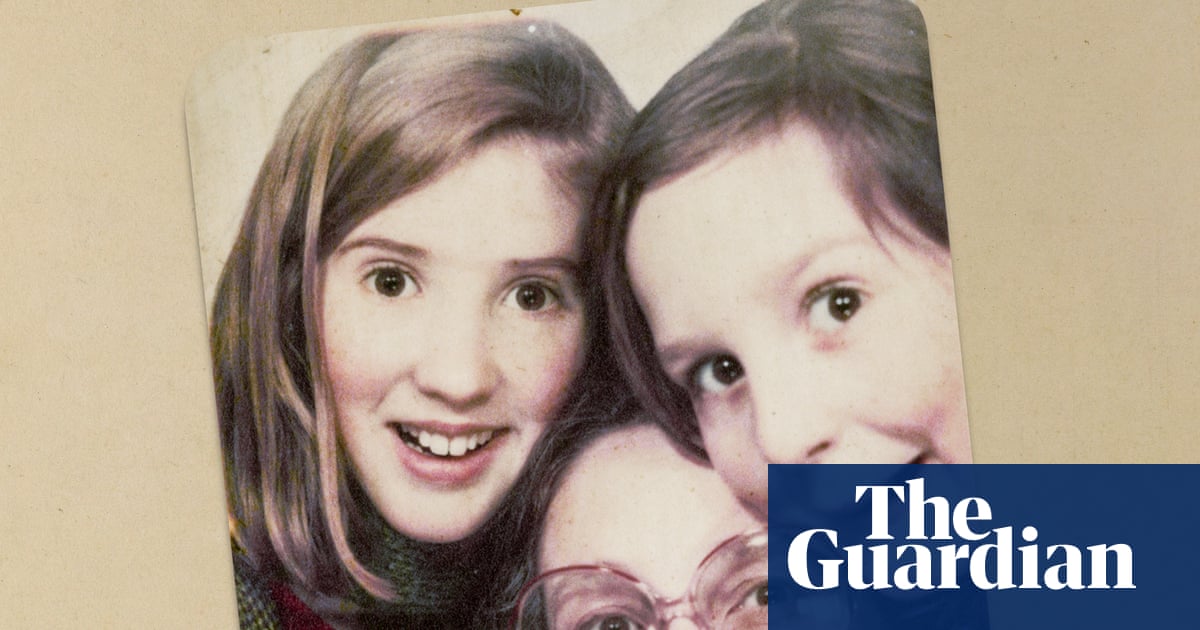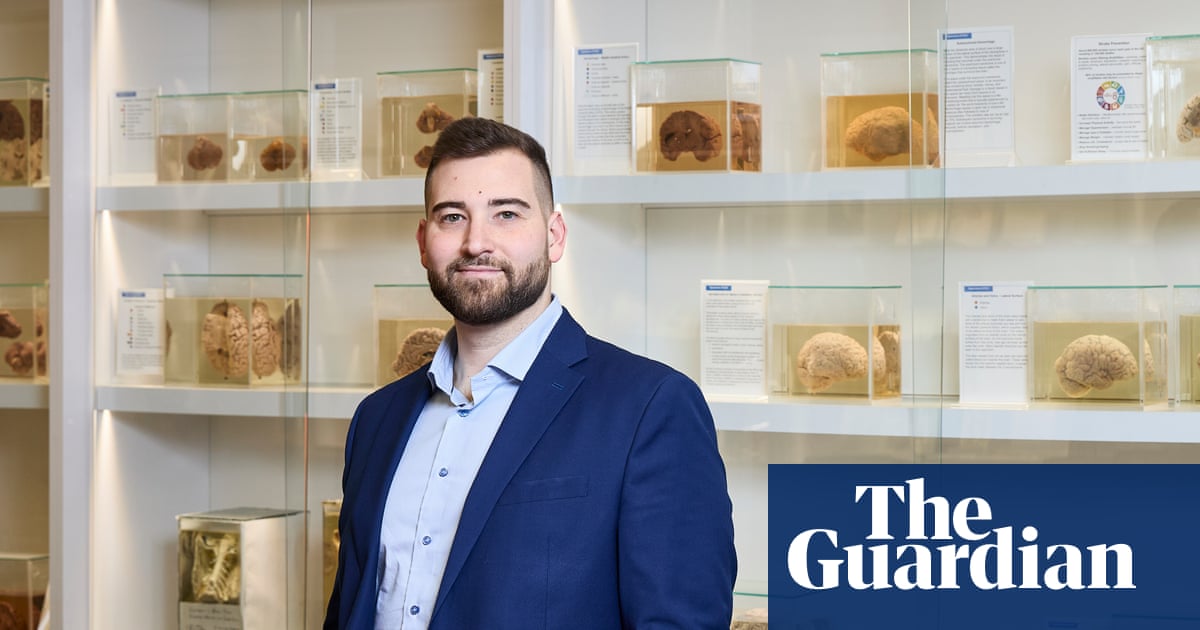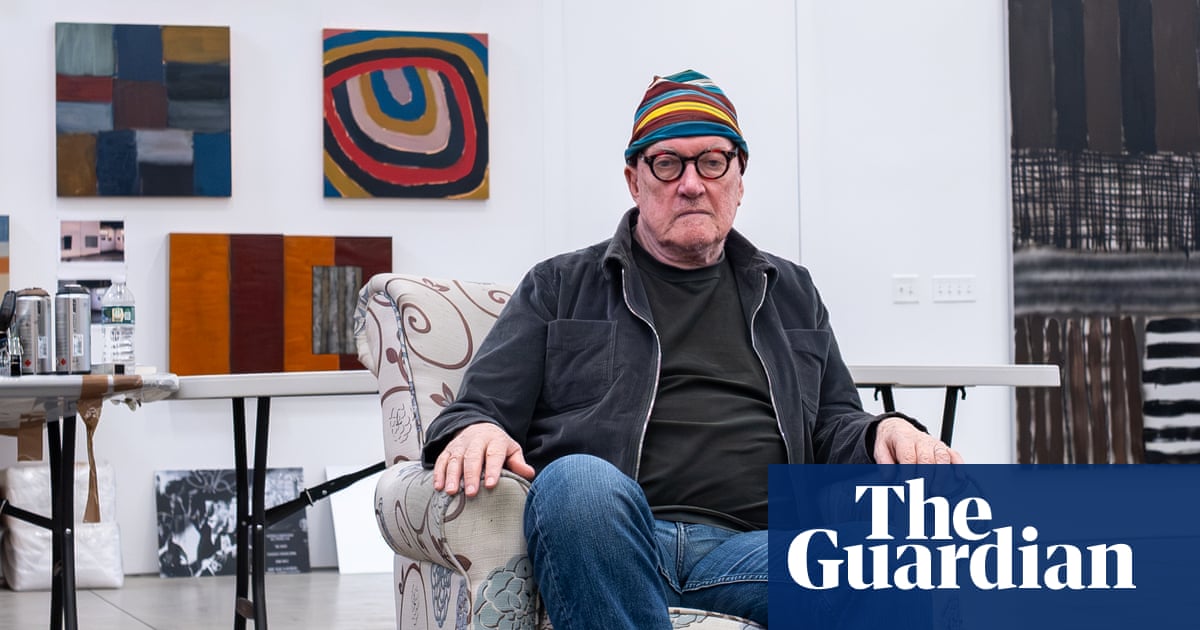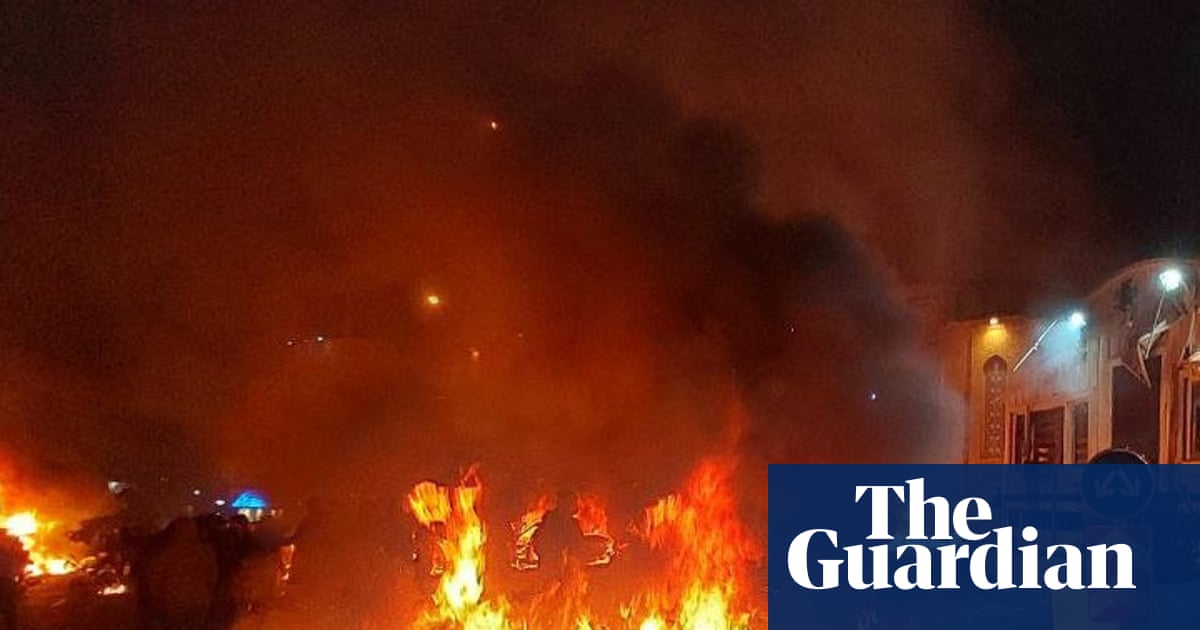The lions of 1970s cinemas are now lions in winter. “I’m so sad about Redford,” says Al Pacino, a day after the death of Robert Redford, his fellow octogenarian actor. “I liked him so much. He was such a sweetheart.”
Perhaps it is because he is currently filming King Lear that Pacino is preoccupied with our collective crawl toward death. He recently rewatched his younger self in Dog Day Afternoon, a Hollywood classic that celebrates its 50th anniversary on Sunday, and was struck by how many of the cast are now gone.
“It hits you, seeing all those people in Dog Day,” the 85-year-old says by phone from Los Angeles. “Can you imagine how you feel? Wow. It’s like a dream. You’re dreaming. You have a dream of someone and you’re so happy about the dream and then you wake up and they’re not there any more? They don’t even exist – in three dimensions anyway.”
Cinema, of course, is one way to cheat death, at least in two dimensions. On screen Pacino will forever be a raw, vulnerable, incandescent presence in Dog Day Afternoon, a crime drama based on the true story of a bank heist that went wrong – and one of the earliest mainstream Hollywood films to acknowledge that transgender people existed.
Pacino plays Sonny Wortzik, a desperate man who, along with his partner Sal (John Cazale), attempts to rob a bank in Brooklyn, New York, to fund his partner’s gender-transition surgery. The heist turns into a chaotic hostage situation as Sonny’s personal struggles and a media frenzy unfold. The movie was directed by Sidney Lumet and won an Oscar for Frank Pierson’s screenplay.
Pacino had just played Michael Corleone in The Godfather Part II, a tough act for anyone to follow. He was approached about Dog Day Afternoon by Martin Bregman, who had been his personal manager and the producer of Serpico, also directed by Lumet and starring Pacino.
“He told me he wanted me to do it and I had read it and thought it was well-written but I didn’t want to do it,” Pacino recalls. “I was in London at the time and I thought, I’m running out of gas. I don’t know if I could do this again.
“It seemed having that kind of intensity again and going through that was too close, I thought, to The Godfather II, which was an intense experience in a lot of ways – not the actual work but everything that had been happening in my personal life was affecting me.”
Pacino turned the role down. “I thought, all right, I understand it’s a great offer and thank you but I don’t think I can do this. I’d like to pass.” He adds with a chuckle: “Once again, I’ve got some kind of gun and I’m gonna go in a bank and rob it: I don’t want to go through that.”
Pacino settled back into life in New York but then “Bregman came back to me because they had someone else who said they wanted to do it, who was notorious, who was a famous actor.”
Widely reported to be Dustin Hoffman?
Pacino denies knowledge of this, describing instead how Bregman persuaded him to take another look at the script. “He calls me. I read the text and realise this is more than what I even thought it was. This is an interesting, powerful piece of work. I knew Sidney was involved, who I loved; we did Serpico together.
“The first thought I had was, why did I pass this up? Where was I in my head? He [Bregman] was a very wise man. I said, ‘Why aren’t I doing this, Mr B?’ He said, ‘I don’t know. Why aren’t you doing it?’ I said, ‘Yeah, OK, I’ll do it.’ He said, ‘All right.’ I guess he had some work to do or whatever he did but they gave me the part and that was it.”
Lumet gave the cast – many of whom had worked with Pacino on stage – three weeks to rehearse before shooting began, a rarity in the film industry. But Pacino had trouble finding his feet.
He says: “For some reason, I felt as though I didn’t know who the character I was playing was. I kind of left that out of the rehearsals or something. I don’t know what happened but I knew when I saw something on the screen I said: no. I saw I didn’t have a character so I thought, what am I doing, where am I, who am I, where am I going?
“I went home that night, took half a gallon of white wine, which I don’t usually drink, for some reason and spent the whole night finding a character within myself from the script. I come in the next day and of course Lumet is looking at me like, what happened, Al? The cast - my friends - are saying, ‘I think he’s having a breakdown.’
“But I wasn’t. I was becoming somebody else, I think. I was becoming the guy that’s in the film. I don’t know to this day if I was kidding myself or what. But I did go through that and it helped me. Let’s put it that way: whether I was right or wrong to do it, it did help me with it. I had something to work with personally.”
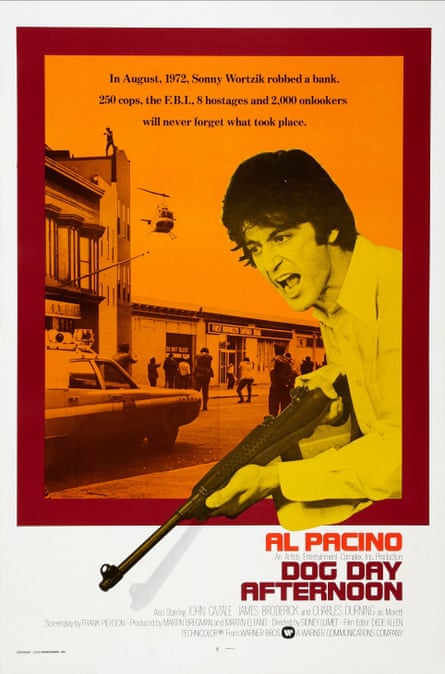
One of the film’s most famous lines was improvised on the spur of the moment. It was a reference a 1971 incident in which prisoners seized control of the maximum-security Attica correctional facility near Buffalo, New York, taking 42 staff members hostage and demanding improvements to inmate treatment and living conditions. The standoff ended in a violent assault by state police resulting in the deaths of 33 prisoners and 10 hostages, making it the deadliest prison riot in US history.
With the heist in progress, Pacino’s character sometimes steps out of the bank to talk to the police, watched by a crowd of extras who have begun to cheer each appearance. Before one such exchange, the assistant director Burtt Harris whispered to Pacino to ask the crowd about Attica.
“The cameras are rolling. He comes up to me. He says, ‘Come here, come here. Al, say Attica.’ I say, ‘What the f-.’ He says, ‘Say Attica.’ I’m on the run so I go out and I’m there and it’s in my head because I know all about Attica because I was around when it was happening.”
As he sees a police officer moving towards him, Sonny shouts: “He wants to kill me so bad he can taste it!” Pacino recalls: “It seemed like the right spot. I said, ‘Remember Attica! Attica!’ The crowd took off. It was like a fuse that started lighting everybody up.
“I started screaming because we all felt the same way about what happened at Attica. I mean, it was amazing. I knew I had them then. Those kind of things can happen in film; they occasionally do. As long as you don’t force-feed it, as long as it becomes a natural environmental thing that happens, it just happens.”
Another totemic scene, in which Sonny and his partner Leon (Chris Sarandon), who identifies as a woman, have a long phone conversation, was improvised across three takes which Lumet then cut together. Pacino says: “One day he told me right there outside, ‘Al, this is out of our hands. It’s got its own life.’”
Lumet was a giant of cinema whose other works would include 12 Angry Men, Network and The Verdict. Pacino says: “He was the greatest director I ever worked with, in terms of working with. There’s other great directors, of course, I was fortunate enough to be with and film with but as far as Sidney was concerned, he was understanding of the actors.
“Directors came to see Sidney work. When he was on the cameras, how he operates, how he sets up a shot.”
Pacino was “stunned” to meet the Italian director Federico Fellini on the set of Dog Day Afternoon. Fellini had wanted him for a part but then decided he was not the right fit. “I remember him saying a compliment to me: ‘You are too good-looking for this role.’ I thought, wow, he knows how to handle an actor, doesn’t he? What a thing to say. OK!”
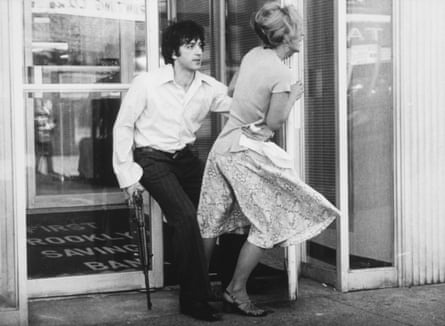
A stage adaptation of Dog Day Afternoon is heading for Broadway next year, starring Jon Bernthal and Ebon Moss-Bachrach, both known for their work on The Bear, and directed by Rupert Goold. Pacino wishes them well. Why does he think the film, which captures the grit of 1970s New York so entirely, continues to resonate after half a century?
“I would say it held up because somehow Lumet got to the humanity of it and the connection of it and the period. It plays more today than it even did then.”
Pacino’s recent viewing of the film was on a big screen, which he heartily recommends. But he also enjoys TV – he loved Adolescence on Netflix – and has also become addicted to YouTube. “I live for it. It runs the gamut from A to Z. You can see anything you want - everything has been shot and interpreted.”
But he is well aware that also means plenty of disinformation. “I saw the other day that I died again,” he laughs. “You see it all the time with celebs. ‘We want to give our condolences.’ Well, I think either I have it wrong or you have it wrong. I seem to be here!”
Many in Hollywood might observe that Donald Trump is contributing to the breakdown of a shared set of facts. Pacino, however, remains tight-lipped as always. “I was never known to talk about politics,” he says. “I know something’s going on that’s a little different but at the same time I don’t go there. I certainly don’t go there in my public life. I just avoided it.”
That makes him different from his contemporary and Godfather Part II co-star Robert De Niro, who has lambasted Trump repeatedly. Pacino says cheerfully: “He’s his guy. He’s his own person. He feels things and he says them and I think it’s really cool. I love Bob. Bob and I go back forever. He is someone I love.”
Redford might be gone but De Niro and Pacino march on. Ripeness is all, as Pacino will presumably say in the upcoming Lear Rex, in which he stars with Rachel Brosnahan, Jessica Chastain, Ariana DeBose and Peter Dinklage.
Still, he has reached an age when it is time to take stock. Last year he published a memoir, Sonny Boy, reflecting on his singular life and career. He jokes that he will speak to the Guardian again to mark the book’s 50th anniversary, which would be 2074.
“You’ll be old enough,” he says, amused but with a touch of melancholy. “I won’t be here though. It’s a shame, isn’t it? It’s a shame we have to go away. God only knows: will we have memories when we go away? Memories are so important.”

 3 months ago
66
3 months ago
66





